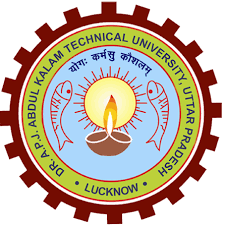The Ph.D. in robotics is a unique graduate program that combines the fields of computer science, mathematics, and physics to develop new methods for robot operation. This field is growing rapidly and offers students an exciting opportunity to work with computers to design and develop innovative devices. This Ph.D. is a highly specialized program and requires advanced skills in critical analysis, creativity, and original concepts. The majority of graduates pursue a career in the field of industrial automation, and many go on to be technical leaders in their field.
The goal of the robotics Ph.D. program is to train researchers in the field of robotics, automation, and engineering. The Ph.D. program teaches students to apply the research techniques and knowledge they have gained to solve new problems in the field. The research topics of automation range from automation of industrial processes to developing robotic systems for domestic environments. The field also includes pattern recognition for quality control systems. Intelligent robots studies aim to develop autonomous, intelligent, and adaptive systems that can function in different environments.
The Ph.D. program in robotics aims to train researchers in the field of robotics and automation. It enables students to learn how to design and build intelligent systems through a multidisciplinary approach. The program is unique and internationally recognized and boasts an excellent faculty. The courses cover medical robotic devices, robotic systems for domestic environments, and human-robot interactions. In addition to the theoretical aspects, the program focuses on applying these skills to solve real-world problems.
Ph.D. in Robotics Engineering Eligibility
Candidates who want to take admission in Ph.D. must have a post-graduate degree in Ph.D. in Robotics Engineering and its relevant discipline with at least 55% marks from a recognized university and must have passed the national level entrance examination or university level entrance examination. National level entrance exams like UGC NET / UGC CSIR NET / GATE / SLET or University entrance exams consist of written tests and personal interviews.
The Benefits of a Ph.D. in Robotics Engineering
A Ph.D. in robotics is a great way to become a world-class researcher and engineer. The program requires students to have a thorough understanding of the field. Students in a robotics Ph.D. program will develop critical thinking skills and master new concepts and approaches to problems. They will also be able to teach others and form multidisciplinary teams. Many students go on to work in leading technology companies.
The robotics field is a burgeoning one, so obtaining a Ph.D. in this field is a smart move. The growing industry needs more researchers in this field, and there is a high demand for such people. A Ph.D. in robotics will put you in a great position to make a difference in the world. You'll be able to apply your knowledge in areas such as machine automation, quantum mechanical systems, air traffic management, and medical robotics. You'll also be able to apply your knowledge as an engineer, software developer, or even a robot-assisted salesperson.
Typically, a Ph.D. program in robotics focuses on research, which can lead to sustainable engineering practices. Graduates may also develop advanced knowledge of chemical engineering topics, industrial needs, and technological systems. In addition, students will become creative and critical thinkers. They will have the skills and knowledge to solve complex engineering problems and contribute to society. They will also be able to apply these skills to improve society.
The Career and Job Opportunities for a Ph.D. in Robotics
Graduates of this program will have excellent career opportunities in the robotics field. Some graduates may pursue careers in machine automation, aviation, medical robotics, or cybernetics. Other opportunities may include working as a robot engineer, a software developer, or a robot account manager. While you're pursuing a Ph.D., there are many ways to use your degree. The field of robotics is growing quickly and it's a great field to enter.
With a Ph.D. in robotics, you can work in the academic field. The scientific research done in a Ph.D. program is highly sought after. As such, professors can earn more than five figures. A job in academia may also lead to a research position. The Ph.D. program takes four years to complete. During that time, students will work on a project that interests them. For example, they might work on developing a robot or solving problems that it faces.
A Ph.D. in robotics is highly sought-after because it is a highly researched field. It also aims to prepare participants with the knowledge to develop sustainable engineering practices. For example, a Ph.D. in robotics may include a graduate-level understanding of chemical engineering, industrial needs, and technological systems. Additionally, a Ph.D. in robotics will equip you with innovative and critical thinking skills.
The Future Scope of Ph.D. in Robotics Engineering
The Ph.D. program in robotics engineering is highly rewarding. The students get the chance to work in a variety of fields and earn a handsome salary. In addition, robotics graduates are able to collaborate with mechanical engineers. Their salary ranges are similar to those of mechanical engineers. These salaries vary according to experience and age. A Ph.D. in robotics is an excellent choice for those interested in a career in advanced robotics.
The field of robotics is a highly interdisciplinary one. With a Ph.D. in robotics engineering, students will be prepared to work with cutting-edge robotic technology in manufacturing units, military applications, and the medical sector. The field of robotics is expanding at a rapid rate. In addition to manufacturing and engineering, robots are also used in the exploration of the ocean and the design of bio-medical equipment.
A Ph.D. in robotics engineering focuses on interdisciplinary engineering, and a robotics engineer can find employment in top organizations throughout India and around the world. The field has enormous scope for new experts to be created. The areas of study include medical robotics, experimental robotics for the military, and the automotive industry. A BS or MS degree in the field is required, and dissertation studies are required to complete the degree.
Ph.D. Research Programme duration
The Ph.D. in Robotics Engineering course is a minimum of 3 years and a maximum of 5 duration. This depends on the university offering the course.
Fees for research program for Ph.D. in Robotics Engineering
The average fee for Ph.D. in Robotics Engineering degree is between INR 50000 and INR 500000.
 5 Years
5 Years
 PhD
PhD
 Research
Research



















 back
back